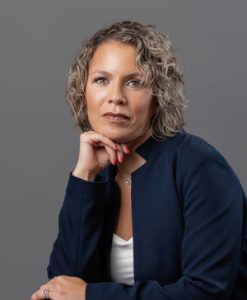An Interview with Nancy Robles of Eastern Funding
 Nancy Robles is president and compliance officer of Eastern Funding LLC, a leading commercial lender to the laundry industry based in New York City. She is responsible for all of the finance company’s day-to-day operational, technology, compliance, and administrative functions.
Nancy Robles is president and compliance officer of Eastern Funding LLC, a leading commercial lender to the laundry industry based in New York City. She is responsible for all of the finance company’s day-to-day operational, technology, compliance, and administrative functions.
Ms. Robles has been in the finance industry for 23 years – 18 of those with Eastern Funding. She joined Eastern in 2005, after working at Fleet Healthcare Capital Leasing/Bank of America.
During her tenure at EF, Nancy has managed the company’s operations functions – including credit, compliance, documentation, funding, loan servicing, legal, technology, and human resources.
In addition, she sits on the board of directors of the Berkeley College Scholarship Foundation and Brookline Bank’s Diversity, Equity and Inclusion Committee, as well as serving the Equipment Leasing and Finance Foundation, the Equipment Finance Cares Foundation, and Monitor magazine’s editorial board.
Nancy was recognized by Monitor magazine as a Top Woman in Equipment Finance for 2020, as well as a Leadership ICON in 2021. She also has been featured in Hispanic Executive magazine.
She holds a paralegal degree, a bachelor’s degree in business management, an MBA, and is currently working to attain a doctor of management degree.
What piqued your interest in the laundry industry?
Eastern Funding’s core business is financing vended laundry equipment, so it happened by default. However, it opened an entirely new world for me.
I grew up in an urban community in Paterson, New Jersey, where laundromats were part of the fabric of the neighborhood. Like many, I took for granted the basic and vital needs laundromats meet. Laundromats not only provide a place to clean clothes, but they’re also a safe place for families to gather. Parents get to model their caregiver roles and potentially spend that much-needed family time together.
As a first-generation immigrant in a single-parent home, I grew up with a mom who worked three jobs, seven days a week. Time together was critical, and having a place to do so safely was essential. I see laundromats as much more than a business. I see them as a place where communities gather, parents have opportunities to nurture their children, and families get to bond.
What do you consider the most valuable resources to learn more about the industry?
At Eastern Funding, we focus on location, equipment makeup, owner’s experience and, most importantly, the borrower’s commitment to the business.
In recent years, the industry has introduced several more resources in terms of events, podcasts, digital and print media, and expert panel discussions. In addition, there is a much larger push toward creating safe spaces for women laundromat owners to gather and learn.
My suggestion would be social media and online searches for all of the above. Start with a strong intention to learn, understanding that not all resources work for everyone. Perhaps join a women’s group, and attend an event with a dedicated time and space for women entrepreneurs and businesspeople.
What do you enjoy most about working in the laundry industry?
I enjoy the diverse customer base we engage with at Eastern Funding.
What do you find most challenging?
I’m a woman of color navigating within two male-dominated industries.
What advice would you give to other women looking to get into this industry?
I would recommend creating a support group of like-minded individuals, where you can have a safe space to discuss challenges, ideas, and advocacy.
If you had to do it all over again, what would you do differently?
I would have actively sought out mentorship from individuals to whom I could relate.
What can laundry industry leaders do to encourage more women to enter the industry in more of the traditionally male-dominated roles – such as store ownership, engineering, R&D, distributor and manufacturing management, and so on?
Leaders shoulder the responsibility of advocating, supporting, and mentoring women in a safe space to encourage innovation, risk, and growth.
Where do you see the industry heading in the next five years?
It’s hard to say where the industry will be in five years. Unfortunately, I had expected that the industry – and society in general – would have been in a more evolved state by now. I can only hope that it eventually will be.











